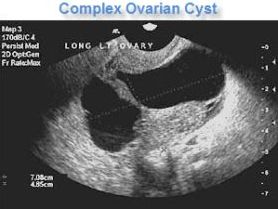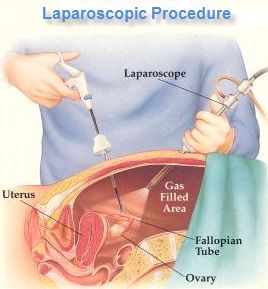What is it?
A complex ovarian cyst is a type of cyst that has both solid and liquid components. Found in the ovary and encased in a thin wall, a complex cyst can appear to be exactly like a basic cyst.
However, complex cysts have a higher potential to become life threatening and should be treated quickly once they are detected.
There are several basic types of complex cysts that may develop. One is known as the dermoid cyst. This type is created using basic cells that are common to the human egg. In fact, it is possible for a cyst of this kind to even have some properties that make it appear to be like an embryo, with hints of hair and teeth embedded in the body of the cyst. While a dermoid cyst rarely become cancerous, there is the chance that it could twist on itself and cause great harm to the ovary.
Another example of the complex ovarian cyst is known as the endometrioma. A cyst of this type is usually developed using tissue that separates from the wall of the uterus. In time, that tissue helps to form a sac that attaches to and permeates the ovary. Because a cyst of this type can not only cause a lot of damage to the ovaries but also the surrounding organs, medical treatment should commence immediately after identifying the presence of the growth.

Cystadenomas are cysts that are filled with a combination of liquid and mucus. A complex ovarian cyst of this type has the capacity to become quite large and cause you a great deal of pain. They also have a tendency to twist on themselves, which only helps to make the pain greater.
There are several basic causes that can lead to the development of complex cysts. Many of them are the same root causes that can trigger the development of any type of ovarian cyst. These include obesity as well as a family history among close female relatives who have experienced the development of a complex ovarian cyst.
An immune system that has been weakened by illness or even by prolonged stress may pave the way for a cyst of this type to develop and grow. If you have been ill lately, under a lot of stress, or have a mother or sister who has a tendency to develop ovarian cysts, you are at greater risk of developing a complex cyst yourself.
 In terms of treatment, healthcare professionals may choose several different approaches to dealing with a complex ovarian cyst. Some will choose to treat any symptoms that manifest while monitoring the condition of the cyst. However, many feel that once the cyst has been identified as complex, there is no need to delay surgery.
In terms of treatment, healthcare professionals may choose several different approaches to dealing with a complex ovarian cyst. Some will choose to treat any symptoms that manifest while monitoring the condition of the cyst. However, many feel that once the cyst has been identified as complex, there is no need to delay surgery.
Depending on the location and size of the cyst, it may be possible to use laparoscopy to remove the growth. However, there is also a chance that you may have to undergo a more intensive surgery that requires a larger incision.
Your doctor can assess your condition, help you understand and weigh your options, and decide on approach to treatment that is in your best interests.